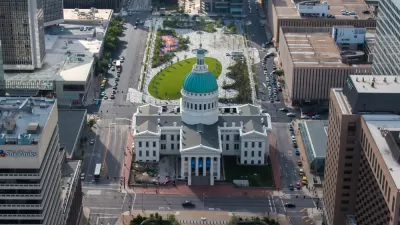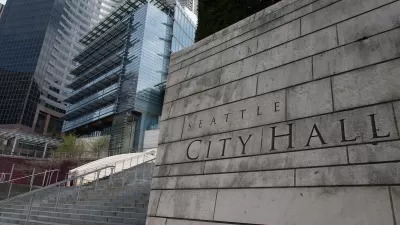Across the country, a growing number of towns, cities and other local governments are seeking refuge in havens that many states provide as alternatives to federal bankruptcy court.
The increasingly common pleas for state assistance - after two relatively quiet decades - reflect the yawning local budget deficits that have appeared in the last two years. The problem is due in large part to dramatically reduced tax income which used to fund labor-intensive public goods such as schools and policing.
Public finance experts worry that the states, mired in their own financial problems, "will not force communities to attack their problems head-on and solve them. If states let towns keep borrowing, without acknowledging the magnitude of the towns' existing debts - like the pensions they owe retired public workers - they might never solve their problems and just keep drawing on the states."
"It's like throwing you a life preserver but never pulling you into the boat," said Daniel Miller, a certified public accountant and the city controller in Harrisburg, PA. He says he believes that the city might be better off in federal bankruptcy court after it asked for emergency funds at the start of the month.
FULL STORY: Cities In Debt Turn To States, Adding Strain

Planetizen Federal Action Tracker
A weekly monitor of how Trump’s orders and actions are impacting planners and planning in America.

Maui's Vacation Rental Debate Turns Ugly
Verbal attacks, misinformation campaigns and fistfights plague a high-stakes debate to convert thousands of vacation rentals into long-term housing.

San Francisco Suspends Traffic Calming Amidst Record Deaths
Citing “a challenging fiscal landscape,” the city will cease the program on the heels of 42 traffic deaths, including 24 pedestrians.

Defunct Pittsburgh Power Plant to Become Residential Tower
A decommissioned steam heat plant will be redeveloped into almost 100 affordable housing units.

Trump Prompts Restructuring of Transportation Research Board in “Unprecedented Overreach”
The TRB has eliminated more than half of its committees including those focused on climate, equity, and cities.

Amtrak Rolls Out New Orleans to Alabama “Mardi Gras” Train
The new service will operate morning and evening departures between Mobile and New Orleans.
Urban Design for Planners 1: Software Tools
This six-course series explores essential urban design concepts using open source software and equips planners with the tools they need to participate fully in the urban design process.
Planning for Universal Design
Learn the tools for implementing Universal Design in planning regulations.
Heyer Gruel & Associates PA
JM Goldson LLC
Custer County Colorado
City of Camden Redevelopment Agency
City of Astoria
Transportation Research & Education Center (TREC) at Portland State University
Jefferson Parish Government
Camden Redevelopment Agency
City of Claremont





























